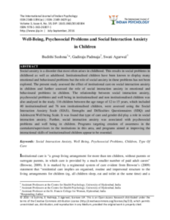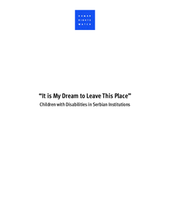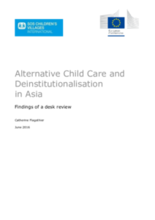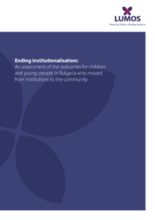Displaying 421 - 430 of 771
This document reports on the status of children who remain in psychiatric hospitals, emergency shelters, and detention facilities in Illinois, US. In 2015, there were approximately 168 children who were hospitalized beyond medical necessity; 380 children who remained in emergency shelter beyond 30 days, and the audit reported “no available data” on children who remained in a detention facility solely because placement cannot be located.
Practical guide for travel companies delivering volunteer tourism experiences.
This study assesses the effects of institutional care on social interaction anxiety in children and further assesses the role of social interaction anxiety in emotional and behavioral problems in children.
The present study aimed to assess the relationship between interpersonal traumatic experiences and specific psychopathological symptoms in a high-risk population of girls and boys living in youth welfare institutions in residential care in Switzerland.
This study examines the effects of early institutional care on infants' brain development.
Using unique 5-year longitudinal data on Korean children in group homes and those under institutional care, this paper compared the medium-term cost-effectiveness of group homes and that of institutional care facilities in terms of developmental outcomes.
This report from Human Rights Watch focuses on the institutionalization of children with disabilities in Serbia.
Maxim’s story illustrates the problems with institutional care and the stagnation often seen in the child protection system.
This desk review examines the reasons children are being placed in care, evaluates the types of care in the region, and discusses regional efforts towards deinstitutionalisation.
This report shares outcomes to date for a group of 1,292 children and young people with disabilities who have transitioned out of large residential institutions (institutions) into small group homes (SGHs) in the community.







